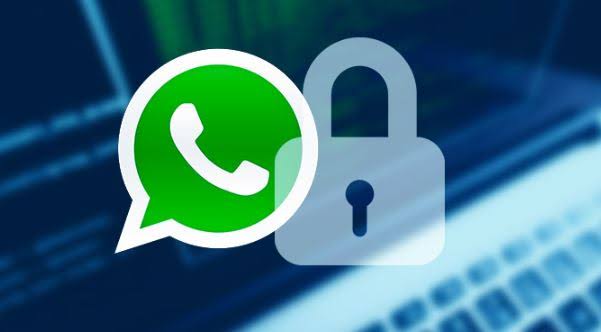
How to Protect Your WhatsApp Account from Being Hacked
With over 2 billion users worldwide, WhatsApp has become one of the most popular messaging apps, making it a prime target for hackers. Ensuring the security of your WhatsApp account is crucial to protect your personal information, conversations, and contacts from unauthorized access. In this guide, we’ll walk you through the steps to safeguard your WhatsApp account from being hacked.
1. Enable Two-Step Verification
Two-step verification adds an extra layer of security to your WhatsApp account by requiring a PIN code in addition to the SMS verification when setting up the app on a new device.
How to Enable Two-Step Verification:
- Open WhatsApp and go to Settings.
- Tap Account and then select Two-step verification.
- Tap Enable and enter a six-digit PIN of your choice.
- Optionally, you can add an email address for additional security in case you forget your PIN.
Why It’s Important: Even if someone gains access to your SIM card or phone number, they won’t be able to activate WhatsApp on another device without the PIN.
2. Be Cautious with SMS Verification Codes
One of the most common ways hackers gain access to WhatsApp accounts is through social engineering attacks, where they trick users into sharing their SMS verification code.
What to Do:
- Never share your WhatsApp verification code with anyone, even if they claim to be from WhatsApp support.
- If you receive an unsolicited message asking for your code, ignore it and report the number if necessary.
Why It’s Important: Sharing this code gives hackers the ability to set up your WhatsApp account on their own device.
Also Check
3. Use Strong Authentication for Your SIM Card
SIM swapping is a technique used by hackers to gain control of your phone number, which they can then use to access your WhatsApp account. Protecting your SIM card from unauthorized access is crucial.
How to Protect Your SIM Card:
- Set up a SIM PIN: Contact your mobile carrier to learn how to set a PIN that must be entered every time your SIM card is inserted into a new device.
- Use carrier-specific security features: Some carriers offer additional layers of security, such as requiring a PIN or password before making changes to your account.
Why It’s Important: Preventing unauthorized access to your SIM card stops hackers from receiving your WhatsApp verification codes.
4. Regularly Monitor Active Sessions
WhatsApp Web allows you to use WhatsApp on your computer. However, if you leave your account logged in on an unknown or shared device, someone else could gain access to your messages.
How to Monitor and Log Out of Active Sessions:
- Open WhatsApp and go to Settings.
- Tap Linked Devices to see all active sessions.
- Review the list of devices, and if you notice any unfamiliar devices, log them out immediately.
Why It’s Important: Keeping track of where your WhatsApp is logged in helps prevent unauthorized access to your account.
5. Be Wary of Phishing Scams
Phishing scams involve hackers pretending to be trusted entities to trick you into providing sensitive information. This can include fake websites, emails, or messages that appear to be from WhatsApp.
How to Protect Yourself:
- Always verify the source of any communication asking for your WhatsApp information.
- Avoid clicking on suspicious links or downloading attachments from unknown sources.
- Check for common signs of phishing, such as poor grammar, urgent requests, or unfamiliar URLs.
Why It’s Important: Falling victim to a phishing scam can lead to your account being compromised without your knowledge.
6. Avoid Using Public Wi-Fi for Sensitive Activities
Public Wi-Fi networks are often less secure and can be vulnerable to attacks that intercept your data, including your WhatsApp communications.
What to Do:
- Use a virtual private network (VPN) when connecting to public Wi-Fi to encrypt your internet connection.
- Avoid logging into WhatsApp or other sensitive accounts when using public Wi-Fi networks.
Why It’s Important: Securing your connection helps prevent hackers from intercepting your data over unprotected networks.
7. Keep Your App and Device Updated
Regular updates often include security patches that protect against the latest vulnerabilities and threats.
How to Keep Your App and Device Updated:
- Enable automatic updates for WhatsApp through your device’s app store settings.
- Regularly check for software updates on your device to ensure it has the latest security features.
Why It’s Important: Using the latest versions of WhatsApp and your device’s operating system helps protect against newly discovered security vulnerabilities.
8. Limit Who Can See Your Personal Information
WhatsApp allows you to control who can view your profile photo, status, last seen, and about information. Limiting this access can help protect your account from potential attackers.
How to Adjust Privacy Settings:
- Go to Settings > Privacy.
- Adjust who can see your personal information by selecting from Everyone, My Contacts, or Nobody.
Why It’s Important: Reducing the visibility of your personal information can decrease the likelihood of being targeted by hackers.
9. Logout from Devices You No Longer Use
If you switch to a new phone or use WhatsApp on a temporary device, ensure you log out properly from the old device.
How to Log Out:
- If you no longer have access to the old device, you can unlink it from your account by going to Settings > Linked Devices.
Why It’s Important: Logging out from devices you no longer use helps prevent unauthorized access if the device is lost, stolen, or sold.
10. Educate Yourself and Stay Informed
Staying informed about the latest threats and best practices for online security is one of the most effective ways to protect your account.
What to Do:
- Follow credible security blogs and news sources.
- Regularly review WhatsApp’s security updates and guidelines.
Why It’s Important: Knowledge is power when it comes to protecting your digital life. Being aware of potential threats allows you to stay one step ahead of hackers.
Securing your WhatsApp account requires a proactive approach, including enabling two-step verification, being cautious with verification codes, and keeping your app updated. By following these steps, you can significantly reduce the risk of your account being hacked, ensuring that your personal information and conversations remain safe.








